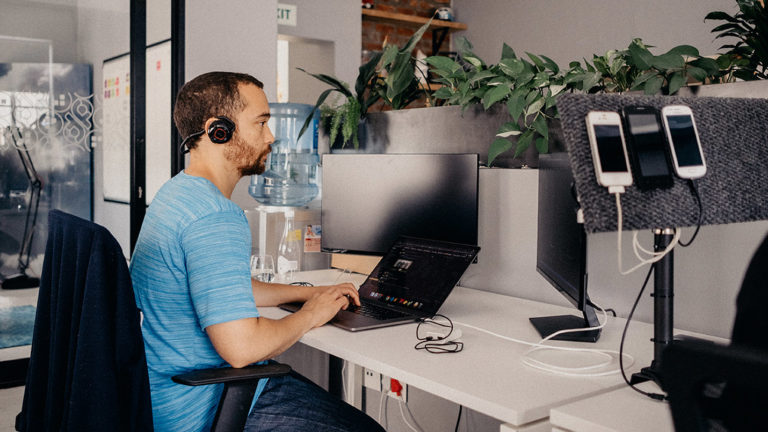What is psychological safety in the workplace and why does it matter?

Thabang
14 October, 2020
Deep into this global health crisis, I started a new job at SnapScan. Due to restrictions on gatherings, it turned into my first fully remote role. Even though I’ve only been at SnapScan for a short time – and I promise my salary isn’t being held hostage in order for me to write this – it’s the best company I’ve ever worked for! This is chiefly due to a single element — psychological safety.
Simply stated, psychological safety in the workplace is about providing a safe space for employees to be their authentic selves. To be fully present at work, to feel “psychologically safe”, we must know that we are free enough to share the things that scare us without fear of alienation.
Read more: What is the importance of diversity and inclusivity in tech?
As Simon Sinek puts it in his book, Leaders Eat Last, “By creating a Circle of Safety around the people in the organisation, leadership reduces the threats people feel inside the group, which frees them up to focus more time and energy to protect the organisation from the constant dangers outside and seize the big opportunities”. People are the lifeblood of any company, so in cultivating an environment which promotes resilience in individuals you create a resilient company. Here are a few ways I’ve experienced this at SnapScan:
Clear and frequent communication
From the moment I joined the team, even as early as 2 weeks before starting, I was made aware of what is expected from me and how it connects to the rest of the team’s objectives. In addition to an “open-door policy,” I met weekly with my manager to air any difficulties or suggestions that could better equip me with meeting my demands. This freed me up to focus my efforts on what I knew was most important at any given time, and meant that I knew that any concerns I had were known — this is the thin line between autonomy and abandonment.

Earn and extend trust
It is not uncommon for people in the team group chat to share that they are taking some time away from their computers for a mental health break. This not only allows people to do their best work in their best state, but gives permission for others to do the same. When people can trust that their vulnerability will be met with kindness and respect, they feel comfortable enough to bring their wealth of experiences to the workplace, creating a space full of diverse thought.
Read more: Hack week BTS: a little gratitude goes a long way
Model fallibility
Despite our best intentions life will happen, we’ll make mistakes or deal with problems outside our expertise. How we handle these moments is what determines if we move forward towards solutions or remain in a cycle of denial. Humans fall into natural hierarchies and this is one instance where a top-down approach is most effective; when leaders are able to admit to not knowing or being unable to perform a task for whatever reason, it creates a space of honesty and progress. In such a space people can focus on solving problems instead of creating fear or guilt — we replace blame with curiosity.
No one wants to leave part of their personality and inner life at home — especially while working from home. Psychological safety fixes this problem. This allows a company’s culture to evolve with the ever-changing and often challenging demands that we experience as people, and that come with us as employees.
Related articles

What is the importance of diversity and inclusivity in tech?
"Sure, your team is more diverse, but is it better?"

How to build rapport with your customers to increase sales
How can you connect with customers, build their trust, and increase sales?

Behind the scenes of SnapScan’s hack week
Give your engineering team (and company) a boost with a hack week.

